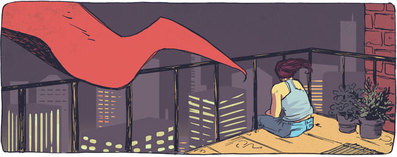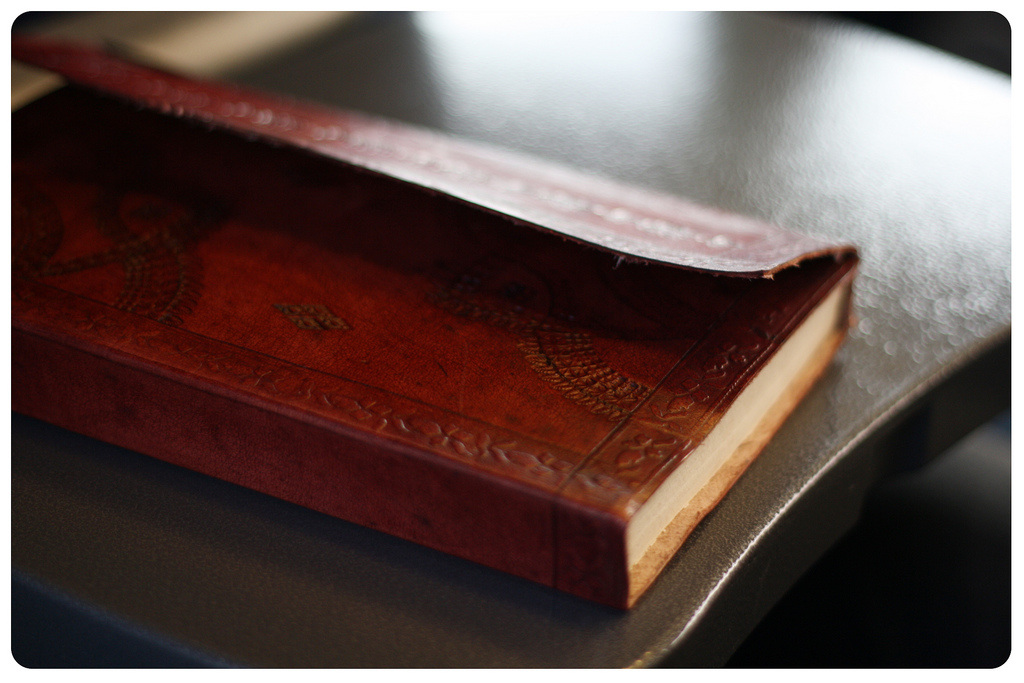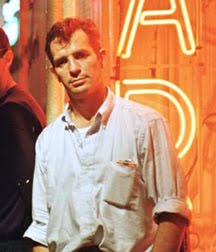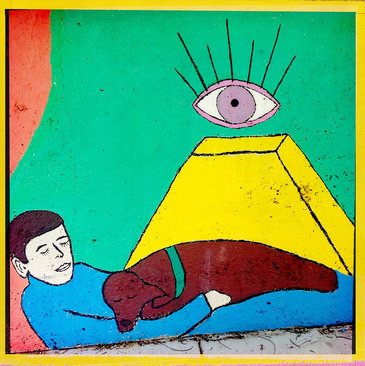|
Journaling is one of the easiest and most powerful ways to discover new truths. By getting your thoughts out of your head and putting them down in writing, you’ll gain insights you’d otherwise miss. While some people use journaling merely to record their thoughts and experiences in a “Dear Diary” fashion, the real power of journaling lies in its ability to help you move beyond sequential thinking and examine your thoughts from a holistic, bird’s-eye view. Use this tool to solve tricky problems, brainstorm new ideas, bring clarity to fuzzy situations, and evaluate progress toward your goals. Instead of a mere record-keeping tool, your journal can vastly accelerate your personal development if you devote it to that purpose.
Many people use paper journals, others prefer a word processor, and some like special journaling software. I used paper journals for many years, but in 2002 I switched to journaling software and never went back. The advantages are numerous. Typing is faster than writing; your entries are stored in a secure, private database; you can use the built-in search feature to instantly find old entries; you can assign entries to categories for better organization; and you can easily make secure backups. The more robust programs even allow you to insert images, audio recordings, videos, spreadsheets, files, Web links, and more. Once you try journaling software, you’ll never want to go back to pen and paper. Personal Development for Smart People: The Conscious Pursuit of Personal Growth by Steve Pavlina "Do not fear going slowly; only fear standing still.'' Chinese Proverb
I am an avid follower of the kaizen philosophy of making small incremental changes that add up over time. These changes are not going to take huge amounts work, but once you get the momentum going, the returns will be great. It is all about getting the momentum going for you. Even though it might seem like a little work in the beginning, you have to see this process as an investment in yourself and understand that the longer you stick with it, the easier it is going to get. I am going to suggest that you implement one new activity into your life and let it build momentum. This activity will allow you to start trusting your inner knowing and move forward in life with additional courage and passion. We will get to this particular activity later in this chapter. First you need to fully understand why you need to trust your inner knowing. There is no one else here on planet earth that has had the same experiences, thoughts, emotions, struggles and success that you have had up until this point. As a meaning maker, the meanings you create are completely unique and this gives you a completely unique perspective of life. This is why the path of self-exploration is ultimately one that you have to take alone. Sure, you can have friends who support you or join a spiritual community. However, you are the only person who knows exactly what you need and when you need it. The Mind-Made Prison: Radical Self Help and Personal Transformation by Mateo Tabatabai The thesis of this book is that what ails you and me has nothing to do with being sick or being wrong. What ails us is that we are living our lives as amateurs. The solution, this book suggests, is that we turn pro.
Turning pro is free, but it's not easy. You don't need to take a course or buy a product. All you have to do is change your mind. Turning pro is free, but it's not without cost. When we turn pro, we give up a life with which we may have become extremely comfortable. We give up a self that we have come to identify with and to call our own. We may have to give up friends, lovers, even spouses. Ambition, I have come to believe, is the most primal and sacred fundament of our being. To feel ambition and to act upon it is to embrace the unique calling of our souls. Not to act upon that ambition is to turn our backs on ourselves and on the reason for our existence. Turning Pro: Tap Your Inner Power and Create Your Life's Work by Steven Pressfield Schedule Time for Writing
Hopefully by now you’ve figured out that you need to make time to write instead of winging it. That means you’ll choose a specific time to write each day and then commit to it. This daily time commitment is the first of the building blocks to creating a successful writing routine. I like to write in the morning, a half hour after I wake up. I devote an hour to writing, five days a week, taking weekends off. This works for me. You will want to play around with times of day until you figure out what works best for you. You’ll want to try writing at different times of day. Later on, we’ll talk about the importance of tracking how much you got done and how you felt about your writing. This will help you determine what time works for you. You may have to work around your work and personal schedule (kids, relationship), carving out time that works with the other demands in your life. This requirement may override your personal preference for writing. Take all of these factors into account as you choose a time . Once you’ve determined what time of day works best for you, you will need to set aside a specific time slot for writing each day. I suggest you reserve an hour each day, but you may need to set aside more or less time, depending on how much time it takes you to achieve your daily word count goal. Once you’ve determined how much you can achieve in a set amount of time, you will want to add this to your daily schedule. Habit 4: Track Your Writing Routine Good writers work in blocks of time, refusing to be distracted while they are “on the clock.” They also carefully track their time, occasionally evaluating what environmental changes influence their ability to produce quality material at top speed. To do this, you will want to master two writing habits: Writing in blocks of time and daily tracking your writing word count. Writing Habit Mastery - How to Write 2,000 Words a Day and Forever Cure Writer's Block by S.J. Scott My new rule for wealth:
I am wealthy when I can maintain the life quality I currently have for 12 months without having to work. I am wealthy when I have the time to travel, exercise, study and meditate without being limited by a steady job. I am wealthy when I am healthy enough to exercise 4 times a week and do the things I love (martial arts, yoga, dancing) without any physical restrictions. I am wealthy when I have at least 2 ideas I can work on in the areas of life I am passionate about. I am wealthy when I express my love to my family and friends whenever I speak to them. When I first did this I suddenly realized that I was in fact already wealthy. I also had the realization that even if I suddenly won the lottery, my life really wouldn't change that drastically! When I changed my rules in the area of wealth, it also became a lot easier for me to acquire additional wealth. Since I was already wealthy, I was behaving and feeling like someone who is wealthy. Do you think it is easier to acquire wealth when you already know you are wealthy? All of my rules are constructed in a way that I am in control of whether or not they are fulfilled. For example, one of my criteria for wealth is: ''I am wealthy when I express my love to my family and friends''. I am in control of whether or not I do this and it is important that you set your criteria in a way where you are in control. If my criteria was: ''I am wealthy when my family and friends love me'', I would be setting myself up for failure because now the control is no longer in my hands. What if my friend was angry and yelled at me one day and if my rule for love stated that someone who yells at you doesn't love you? I would mistakenly come to think that he didn't love me. At this point I will not only feel my friend doesn't love me, but I will no longer feel wealthy either. This is the power of rules and it is important that you set them up in a way where you are in control. I once heard someone's rule for success, which I immediately adopted. His rule for success was: Everyday alive and breathing is success. Talk about setting yourself up for SUCCESS! What happens if something in the external world happens and my rules for wealth are no longer fulfilled? Well, I just go ahead and change the criteria I have for that given rule. I am an expert meaning maker and I play in the world of meaning in whatever way will give me the most positive emotions and the highest quality of life. The Mind-Made Prison: Radical Self Help and Personal Transformation by Mateo Tabatabai In advocating spontaneous composition with little or no revision, Kerouac was demanding more discipline, not less; the writer, like the athlete or the jazz musician, was to commit himself to daily and endless practice in letters, journals, and “sketching,” as Kerouac called his fast-as-hands-can-print transcriptions of his immediate surroundings, all training for the moment of performance.
The skills of improvisation, devalued in the modern industrial West, were to laboriously unlocked, like prisoners buried in a cave led by a perilous route back into the light. Nor did the fact that Kerouac’s work was openly, unabashedly autobiographical, that he staked everything on an ethos of almost physical intimacy in which the somatic self’s fluctuations defy the censorship of the mind, bringing the narrative “I” as close to himself as possible and abolishing the traditional distance between author and reader, mean the result was life, not art. The true story of postwar America in all its speed, tomfoolery, and sorrowfulness, Kerouac believed, could only be told as interior monologue and confession. Buddhism promised Kerouac a world where wanderers could fashion their own religious order, one more ecumenical than Christianity ever devised, a special form of the gathered church, “big wild bands of holy men,” in Kerouac’s words in The Dharma Bums, “Zen lunatics” bringing the “vision of freedom of eternity” to all creatures and sanctifying a way of life fast disappearing in America: the way of the vagrant, the hobo, the bum. The “Dharma” in Kerouac’s title meant “truth,” but the word “Bums” held an older and deeper It summoned up the Depression images of his boyhood Kerouac loved, men traveling “with nothing but a paper bag for luggage,” as he put it in Desolation Angels, “waiting in line for coffee and donuts…forag[ing] in riverside dumps looking for junk to sell,” an image with a long pedigree in American life and popular culture The Dharma Bums (Penguin Classics Deluxe Edition) by Jack Kerouac Someone just wrote me, for instance, and said they want to write a novel (they have the idea) but don’t know how. The answer is really simple: first practice staring at a blank screen for 20 minutes a day. Then start writing 500 words a day. A novel is 60,000 words.
500 words a day is 180,000 words in one year (and that assumes breaks for 5 holidays). 500 words is only 2-3 paragraphs. So you can write 3 novels in one year. Or one good, highly edited novel. And that’s if you limit yourself to 500 words. With practice you’ll go up to 1,000 words, 2,000 words, etc. Any small improvement (staring at a blank screen to get used to the idea of writing) will add up to success beyond belief (who would think you can do 3 novels in a year so easily?) Walter Mosely (one of my favorite mystery writers) has written that if you just write 500 words a day (three paragraphs) then in 100 days you have 50,000 words. Which is roughly the length of a small but publishable novel. So you can write 3.5 novels a year. Or write one really good one that you’ve rewritten quite a bit. Try it. Faq Me by James Altucher  He left me where he found me: the balcony of my mother’s apartment with the smell of adobo wafting in from the windows above, my sneakered feet dangling off the edge. His cape fluttered in the breeze and disappeared over the apartment building across the street, its jagged hem just barely missing a satellite dish. Read more from the superhero breakup I once heard a Nobel Prize-winning scientist talk about randomness, and something he said has stuck with me: What is randomness? he asked. The chances of something specifically happening at a certain time and place are astronomical, and yet every second of every day is filled with these unlikely events. You drop a dime on the floor. It rolls in a spiral, then twirls to a standstill. What are the odds that could happen exactly the same way again? Millions, maybe trillions, to one. And yet it happened as naturally as if there were no odds against it. Every event in our lives happens as if there were no odds against it. The scientist argued that randomness does not exist. We have operational definitions, he asserted, definitions that work for a certain series of circumstances and conditions, but we don’t have an absolute definition that works in all cases.
20 Master Plots: And How to Build Them by Ronald B Tobias A close reading of Wolfe suggests some strategies to achieve mastery of the long sentence:
• It helps if subject and verb of the main clause come early in the sentence. • Use the long sentence to describe something long. Let form follow function. • It helps if the long sentence is written in chronological order. • Use the long sentence in variation with sentences of short and medium length. • Use the long sentence as a list or catalog of products, names, images. • Long sentences need more editing than short ones. Make every word count. Even. In. A. Very. Long. Sentence. In the 1940s Rudolf Flesch described the effects that made a sentence “easy” or “hard” to read. According to Flesch, an 1893 study illuminated the shrinking English sentence: “The average Elizabethan written sentence ran to about 45 words; the Victorian sentence to 29; ours to 20 and less.” Flesch used sentence length and syllable count as factors in his readability studies, an arithmetic once derided by E. B. White in his essay “Calculating Machine.” “Writing is an act of faith,” wrote White, “not a trick of grammar.” The good writer must believe that a good sentence, short or long, will not be lost on the reader. And although Flesch preached the value of the good eighteen-word sentence, he praised long sentences written by such masters as Joseph Conrad. Writing Tools: 50 Essential Strategies for Every Writer by Roy Peter Clark |
Click to set custom HTML
Categories
All
Disclosure of Material Connection:
Some of the links in the post above are “affiliate links.” This means if you click on the link and purchase the item, I will receive an affiliate commission. Regardless, I only recommend products or services I use personally and believe will add value to my readers. I am disclosing this in accordance with the Federal Trade Commission’s 16 CFR, Part 255: “Guides Concerning the Use of Endorsements and Testimonials in Advertising.” |
Photos from Wesley Oostvogels, Thomas Leuthard, swanksalot, Robert Scoble, Lord Jim, Pink Sherbet Photography, jonrawlinson, MonsterVinVin, M. Pratter, greybeard39, Stepan Mazurov, deanmeyersnet, Patrick Hoesly, Lord Jim, Dcysiv Moment, fdecomite, h.koppdelaney, Abode of Chaos, pasa47, gagilas, BAMCorp, cmjcool, Abode of Chaos, faith goble, nerdcoregirl, Adrian Fallace Design & Photography, jmussuto, Easternblot, Jeanne Menjoulet & Cie, aguscr, h.koppdelaney, Saad Faruque, ups2006, Unai_Guerra, erokism, MsSaraKelly, Jem Yoshioka, tony.cairns, david drexler, Reckless Dream Photography, Raffaele1950, kevin dooley, weegeebored, Cast a Line, Zach Dischner, Eddi van W., kmardahl, faungg's photo, Alan Light, acme, Evan Courtney, specialoperations, Mustafa Khayat, darkday., Orin Zebest, Robert S. Donovan, disparkys, kennethkonica, aubergene, Nina Matthews Photography, infomatique, Patrick Hoesly, j0sh (www.pixael.com), SmithGreg, brewbooks, tjsander, The photographer known as Obi, Simone Ramella, striatic, jmussuto, m.a.r.c., jfinnirwin, Nina J. G., pellesten, dreamsjung, misselejane, Design&Joy, eeskaatt, Bravo_Zulu_, No To the Bike Parking Tax, Kecko, quinn.anya, pedrosimoes7, tanakawho, visualpanic, Brooke Hoyer, Barnaby, Fountain_Head, tripandtravelblog, geishaboy500, gordontarpley, Rising Damp, Marc Aubin2009, belboo, torbakhopper, JarleR, aakanayev, santiago nicolau, Official U.S. Navy Imagery, chinnian, GS+, andreasivarsson, paulswansen, victoriapeckham, Thomas8047, timsamoff, ConvenienceStoreGourmet, Jrwooley6, DeeAshley, ethermoon, torbakhopper, Mark Ramsay, dustin larimer, shannonkringen, Stf.O, Todd Huffman, B Rosen, Lord Jim, Jolene4ever, Ben K Adams, Clearly Ambiguous, Daniele Zedda, Ryan Vaarsi, MsSaraKelly, icebrkr, jauhari, ajeofj3, jenny downing, Joi, GollyGforce, Andrew from Sydney, Lord Jim, 'Retard' (says University of Missouri), drukelly, Sullivan Ng, jdxyw, infomatique, AlicePopkorn, RAA408, Abode of Chaos, SaMaNTHa NiGhTsKy, as always..., D@LY3D, Angelo González, the sugary smell of springtime!, Marko Milošević, pedrosimoes7, MartialArtsNomad.com, 401(K) 2013, Sigfrid Lundberg, MoneyBlogNewz, NBphotostream, the stag and doe, Jemima G, bablu121, .reid., jared, EastsideRJ, Alex Alvisi, Marie A.-C., geishaboy500, modomatic, starsnostars., Hardleers, Sarah G..., donielle, Danny PiG, bigcityal, || UggBoy♥UggGirl || PHOTO || WORLD || TRAVEL ||, -KOOPS-, seafaringwoman, kingkongirl, Richard Masoner / Cyclelicious, Hans Gotun, gruntzooki, Duru..., Vectorportal, Peter Hellberg, Alexandre Hamada Possi, Santi Siri, Joshua Rappeneker, a little tune, Patricia Mangual, erokism, woodleywonderworks, Philippe Put, Purple Sherbet Photography, Abode of Chaos, greybeard39, swanksalot, greyloch, Omarukai, Marc_Smith, SLPTWRK, Peter Alfred Hess, illum, MarioMancuso, willc2, _titi, Lightsurgery, Rennett Stowe, feverblue, Esteman., Keith Allison, DCist, h.koppdelaney, Mike Deal aka ZoneDancer, Jos Dielis, The Wandering Angel, Nathaniel KS, MsSaraKelly, Frank Lindecke, Kara Allyson, JeremyGeorge, deoman56, gagilas, Xoan Baltar, Luke Lawreszuk, Eric-P, fdecomite, lorenkerns, masochismtango, Adrian Fallace Design & Photography, anarchosyn, -= Bruce Berrien =-, radiant guy, Free Grunge Textures - www.freestock.ca, El Bibliomata, antmoose, Pedro Belleza, Fitsum Belay/iLLIMETER, Nathan O'Nions, denise carbonell, swanksalot, ▓▒░ TORLEY ░▒▓, Marco Gomes, Justin Ornellas, jenni from the block, René Pütsch, eddieq, thombo2, Ben Mortimer Photography, :moolah, ideowl, joaquinuy, wiredforlego, Rafa G. _, derrickcollins, Fishyone1, ben pollard, Admiralspalast Berlin, Georgio, garybirnie.co.uk, fiskfisk, MoreFunkThanYou, xJason.Rogersx, kevin dooley, David Holmes2, Kris Krug, JD Hancock, Images_of_Money, andriux-uk events, Tyfferz, decafinata, jonrawlinson, isado, Lohan Gunaweera, Derek Mindler, Mike "Dakinewavamon" Kline, themostinept, kiwanja, erokism, dktrpepr, Keoni Cabral, denise carbonell, Neal., tonystl, ericmay, Ally Mauro, erokism, Georgie Pauwels, anitakhart, Ivan Zuber, r2hox, Aka Hige, badjonni, striatic, Arry_B, 401(K) 2012, pvera, Lord Jim, Dredrk aka Mr Sky, TerryJohnston, eschipul, wiredforlego, Yuliya Libkina, fabbio, Justin Ruckman, David Boyle, Matthew Oliphant, Keoni Cabral, Thaddeus Maximus, Abode of Chaos, matthias hämmerly, dospaz, LadyDragonflyCC - >;<, CassiusCassini2011, Abode of Chaos, Jorge Luis Perez, infomatique, Mark Gstohl, AliceNWondrlnd, ç嬥x, ssoosay, striatic, NASA Goddard Photo and Video, feverblue, MsSaraKelly, kohlmann.sascha, Vox Efx, country_boy_shane, paularps, Gage Skidmore, HawkinsSteven, Cam Switzer, Arenamontanus, anieto2k, Georgie Pauwels, my camera and me, Lord Jim, nolifebeforecoffee, Joris_Louwes, Kemm 2, VinothChandar, DeeAshley, brewbooks, craigemorsels, Boris Thaser, Poster Boy NYC, ssoosay, guzzphoto, sachac, chefranden, Wanja Photo, Samuel Petersson, onlyart, samsaundersleeds, Ghita Katz Olsen, mcveja, matthewwu88, Victor Bezrukov, JasonLangheine, erokism, vitroid, thethreesisters, charlywkarl, Sharon & Nikki McCutcheon, Ol.v!er [H2vPk], mikecogh, tec_estromberg, noii's, nicholaspaulsmith, Tucker Sherman, Phil Grondin, Cea., Randomthoughtstome, dcobbinau, rafeejewell, pedrosimoes7, lumaxart, marfis75, roland, RLHyde, David Boyle in DC, Sigfrid Lundberg, Thomas Geiregger, Uberto, bgottsab, Conor Lawless, phphoto2010, Steven | Alan, ckaroli, dweekly, AleBonvini, 드림포유, die.tine, MsSaraKelly, equinoxefr, Sarabbit, Abode of Chaos, Galantucci Alessandro, LadyDragonflyCC - >;< - Spring in Michigan!, Alan Gee, Johan Larsson, SoulRider.222, Robert S. Donovan, amslerPIX, cfaobam, Amy L. Riddle, Bladeflyer, Blomstrom, pumpkincat210, Lord Jim, Symic, kevin dooley, pixelthing, Nelson Minar, Fraser Mummery, The Booklight, edenpictures, everyone's idle, betsyweber, h.koppdelaney, ark, Ben Fredericson (xjrlokix), dphiffer, Jeff Kubina, istolethetv, dullhunk, Tambako the Jaguar, fdecomite, The Daily Ornellas, Badruddeen, kevindooley, mnem, Reyes, sadaton, Mary..K, akunamatata, Dennis Vu Photography for Unleashed Media, mitch98000, ganesha.isis, maria j. luque, doneastwest, w00tdew00t, kevindooley, NightFall404, Infrogmation, nandadevieast, darkpatator, Christos Tsoumplekas, sicamp, Hello Turkey Toe, cliff1066™, James Jordan, gailf548, andrew_byrne, infomatique, graphia, -= Bruce Berrien =-, aphrodite-in-nyc, jmussuto, eiko_eiko, Emily Jane Morgan, _Imaji_, kait jarbeau is in love with you, Leeks, h.koppdelaney, paul-simpson.org, Pinti 1, Namlhots, -KOOPS-










 RSS Feed
RSS Feed

